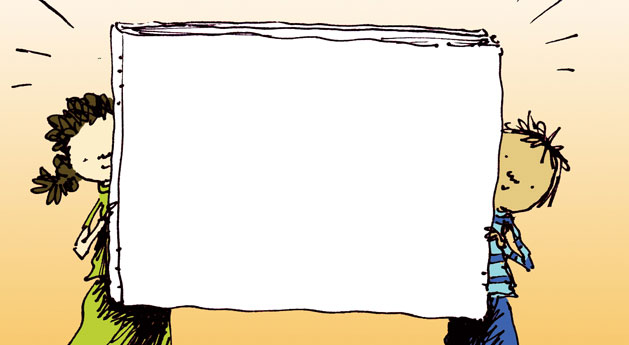Mastering Your Learning Pages: The Page Kennedy Approach
Have you ever felt a little lost when trying to keep track of your study materials, or perhaps found it tough to get your thoughts down clearly on paper? It's a common feeling, you know, to be honest. Whether you are a student trying to ace a test or a teacher looking to share knowledge, the way you use the physical or digital page makes a big difference. This idea, which we call the page kennedy approach, really helps organize your learning path.
It is about more than just having words on a piece of paper; it involves making every page a useful tool for learning and teaching. Think about writing notes in your textbook or on a handout. That simple act is a part of this way of thinking. It is about making sure your notes help you remember things, rather than just being a jumble of words. This way, your learning becomes a bit more clear, you see.
Today, we will explore how to make your pages truly work for you, drawing from practical methods that can improve how you learn and how you teach. We will look at different ways to make pages more effective, from organizing your thoughts to setting up lesson plans. It is, in a way, about giving purpose to every single page you encounter or create.
Table of Contents
- Understanding the Page Kennedy Approach
- Notes That Stick: Making Your Handouts and Textbooks Work
- Formal Letters Made Simple: The Art of Clear Communication
- English Language Skills on Every Page
- Crafting Effective Lesson Plans
- The 'Continued' Page Concept: Keeping Flow
- Frequently Asked Questions About Page Organization
- Conclusion: Your Path to Page Mastery
Understanding the Page Kennedy Approach
The page kennedy idea is, in essence, about bringing structure and purpose to every piece of written material you handle. It is about using pages, whether physical or digital, in a way that truly supports learning and effective communication. Think of it as a guide for making your notes, documents, and lesson plans as useful as possible. This approach helps you get more out of what you read and what you write, you know.
It means thinking about how information is laid out, how easily it can be understood, and how it helps someone learn. For instance, when you write your questions on a handout, that is a small step in applying this idea. It is about personalizing the page to fit your learning style, or to make your teaching more effective for others. This way of thinking, really, aims for clarity and impact.
This approach applies to so many different areas, from academic study to professional writing. It helps both learners and teachers create a more organized and productive environment. By focusing on the page itself, we can improve how we take in information and how we share it. It is, in a way, a simple yet very powerful concept for anyone involved in education or self-improvement.
Notes That Stick: Making Your Handouts and Textbooks Work
Taking good notes is a skill that really helps you remember things, and the page kennedy method puts a lot of focus on this. When you write your questions or notes directly on a handout or in your textbook, you are actively working with the material. This is much better than just reading it, you see. It helps you connect with the ideas more deeply.
Think about it: putting your thoughts right next to the information means you are engaging with it right away. This can make the material more personal and easier to recall later. It is about making the page a conversation partner, rather than just a static source of information. So, you might highlight key phrases or jot down questions that come to mind, making the page truly yours.
This kind of active note-taking helps solidify what you are learning. It turns a simple page into a tool for understanding and review. You can quickly see your own questions or summaries, which makes studying for tests a lot easier. It is, in some respects, about creating a personalized study guide as you go along, which is quite helpful.
Formal Letters Made Simple: The Art of Clear Communication
Writing formal letters can seem a bit tricky, but the page kennedy principles can really simplify it. It is all about clear presentation and proper formatting, which makes your message easy to read and understand. Learning the correct way to set up a formal letter means your communication will be taken seriously, and that is important for many situations, you know.
You need to know how to structure your thoughts on the page, from the opening address to the closing remarks. This includes things like where to put dates, addresses, and salutations. Having a good outline for enquiry or covering letters, for example, helps you get straight to the point without any confusion. It is about making sure every part of the letter serves its purpose clearly.
Many people find it useful to have a template to follow. This way, you do not have to worry about the layout and can focus more on the actual words you want to use. A well-formatted letter looks professional and shows you care about how your message comes across. This attention to detail on the page can make a big difference in how your letter is received, which is actually quite significant.
English Language Skills on Every Page
For anyone looking to improve their English, the page kennedy idea means using every learning resource to its fullest. Websites like usingenglish.com offer many ways to get better at the language. It is about more than just reading words; it is about interacting with them on the page to build your skills. You can, for instance, improve your vocabulary by working through exercises that are laid out clearly.
Being part of a community of learners and teachers can also make a big impact. When you share ideas or ask questions, you are engaging with the language in a real way. This kind of interaction, often happening through forums or comments on a page, helps solidify your understanding. It is, in a way, about making the learning process collaborative and active.
The variety of resources available means you can find materials that fit your specific needs. From grammar explanations to vocabulary lists, each page is designed to help you move forward. This focus on structured, accessible content on each page is central to the page kennedy way of thinking. It makes learning English feel less like a chore and more like a steady progression, which is pretty good.
Interactive Reading for Better Understanding
Reading comprehension exercises are a great way to put the page kennedy principles into practice. These exercises encourage you to really think about what you are reading, not just skim over it. By engaging with questions and tasks on the page, you can truly absorb the information. It is about making the reading process active, so you get more out of each text, you know.
These exercises often cover a wide range of topics and different skill levels. This means you can find something that is just right for where you are in your language journey. Whether you are just starting out or looking for something more advanced, the structured pages guide you through. It is, in some respects, like having a personal tutor on every page, guiding your understanding.
The goal is to help you master the language by making you think critically about what you read. By working through these interactive pages, you build a stronger grasp of English. This consistent practice, where each page offers a new challenge, helps build confidence. It is, you could say, a very effective way to improve your reading skills over time.
Grammar Practice Made Easy
Understanding English grammar can seem a bit complex, but with the right resources, it becomes much simpler. The page kennedy approach highlights the benefit of well-organized grammar worksheets and handouts. These materials provide clear explanations and plenty of practice opportunities, all laid out on the page for easy use. There are, for instance, hundreds of free printables available for teachers and learners alike.
These worksheets are designed to help you understand specific grammar rules through focused exercises. You can practice everything from verb tenses to sentence structure. The clear presentation on each page means you can follow along without getting confused. It is about breaking down grammar into manageable parts, making it less overwhelming, you know.
For teachers, these printables are a huge help in the classroom. They provide ready-to-use materials that save time and effort. Students can work through them individually or in groups, reinforcing what they have learned. This kind of structured practice, where each page offers a clear learning goal, is really key to building a solid foundation in English. It is, frankly, a straightforward way to get better at grammar.
Crafting Effective Lesson Plans
For teachers, the page kennedy idea is all about creating lesson plans that are clear, engaging, and easy to follow. A well-structured lesson plan, typically found on pages of a PDF, makes teaching more effective and enjoyable for everyone involved. It is about laying out your activities and explanations in a logical order, so students can easily keep up, you see.
Having access to collections of practical and engaging lesson plan PDFs means you do not have to start from scratch every time. These resources, like those found on page 1 of various collections, give you a solid starting point. They often include answers and teacher notes, which are very helpful for guiding your instruction. It is, in a way, like having a helpful assistant for your lesson preparation.
Whether you are teaching beginners or advanced students, the way your lesson is presented on the page matters. Clear headings, bullet points, and well-organized activities help maintain student focus. This attention to the structure of the page ensures that learning flows smoothly. It is, you could say, a fundamental part of good teaching practice.
Beginner and Elementary Lessons
For those just starting out in English, beginner and elementary lesson plans need to be especially clear and encouraging. The page kennedy approach here means providing materials that are simple to understand and fun to use. These plans, often found on page 1 of a collection, focus on basic vocabulary and sentence structures, making learning approachable. They are typically filled with activities that get students talking and practicing, you know.
These lesson plans often include pictures or simple diagrams to help convey meaning. This visual support on the page is very important for new learners. It helps them connect words with ideas without getting overwhelmed by too much text. It is about building confidence from the very first page, making the learning experience positive and effective.
Teachers find these ready-to-use PDFs incredibly useful. They provide a clear path for teaching fundamental concepts, ensuring that every student gets a solid start. The structured layout on each page means you can move through the lesson with ease, keeping your students engaged. It is, in some respects, about making the initial steps in English as smooth as possible.
IELTS Preparation Pages
Preparing for tests like IELTS requires focused and well-organized materials, and the page kennedy method is very relevant here. Free IELTS PDF lesson plans and worksheets, complete with answers and teacher notes, are invaluable resources. These pages are designed to target specific skills needed for the exam, helping students practice effectively. They are, for example, often structured to mimic the actual test format, which is quite helpful.
Each page typically focuses on a particular aspect of the test, such as reading, writing, listening, or speaking. This segmented approach helps students concentrate on one skill at a time. The clear layout and practical exercises on these pages help build the necessary confidence and knowledge for the exam. It is about providing a clear pathway through the complexities of test preparation.
Teachers can use these materials to guide their students through mock tests and targeted practice. The answers and notes provided on the pages help in giving effective feedback. This systematic approach to preparation, where every page contributes to the overall goal, is key to success. It is, you know, about making sure students are fully ready when test day comes.
Advanced Level Teaching Materials
For students who have a good grasp of English, advanced ESL lesson plans need to challenge them further. The page kennedy approach means providing resources that spark enthusiasm and help improve language proficiency even more. These plans, often found on page 1 of advanced collections, introduce more complex topics and sophisticated language structures. They are designed to push learners beyond their current comfort zone, you see.
These materials often include discussions, debates, and more intricate writing tasks. The way these activities are presented on the page encourages deeper thought and more nuanced expression. It is about giving students the tools to communicate effectively in a wider range of situations. So, you might find pages with challenging articles or prompts for creative writing.
Teachers looking for comprehensive resources will find these advanced plans very useful. They provide structured ways to explore complex grammar, idiomatic expressions, and cultural topics. The clear organization on each page helps maintain a smooth teaching flow. It is, in a way, about helping students refine their English to a very high standard, which is quite rewarding.
The 'Continued' Page Concept: Keeping Flow
Even small details, like knowing how to properly use the word 'continued' at the bottom of a page, fit into the page kennedy philosophy. This seemingly minor point is actually about maintaining clarity and flow in your documents. It tells the reader that there is more information on the next page, preventing confusion and ensuring they follow your thoughts completely. It is, in a way, a simple courtesy for the reader.
Getting this format right shows attention to detail and professionalism. It helps create a smooth reading experience, especially for longer documents or reports. Imagine reading something important and not knowing if you have reached the end of a section or if it just keeps going. The 'continued' note solves that problem, you know.
This practice, while small, is part of making every page work effectively for communication. It is about guiding the reader seamlessly from one page to the next, ensuring no information is missed. This kind of thoughtful page design is a hallmark of good document creation. It is, you could say, a tiny detail that makes a big difference in readability.
Frequently Asked Questions About Page Organization
Here are some common questions about making pages work better for learning and teaching:
How can I make my notes on a page more useful for studying?
To make your notes more useful, try writing questions in the margins of your textbook or handout. This encourages active thinking as you read. You could also use different colors for headings or key points. This helps your brain organize the information better. It is about making the page an active tool, you see, rather than just a place to copy words.
Where can I find reliable formal letter templates?
You can often find free formal letter templates online from reputable educational sites. These templates usually provide outlines for different types of letters, like enquiry or covering letters. Using a template helps you get the formatting right, so you can focus on your message. This makes the process much less stressful, which is pretty good.
What are the best ways to improve English writing skills using online pages?
To improve your English writing skills, look for websites that offer engaging exercises and practical tips. Many platforms provide interactive writing prompts and feedback mechanisms. Regularly practicing these exercises on the page helps you build confidence and refine your style. It is, in some respects, about consistent effort and using the resources available to you.
Conclusion: Your Path to Page Mastery
The page kennedy approach, really, is about seeing every page as an opportunity to learn, teach, and communicate more effectively. From jotting down notes in your textbook to creating clear lesson plans, paying attention to how information is presented on the page makes a significant impact. It is about making your materials work harder for you, so you can achieve your learning goals more easily. This focus on clarity and structure helps everyone involved, you know.
By applying these ideas, you can transform simple pages into powerful tools for understanding and expression. Whether you are improving your English, writing a formal letter, or preparing a class, thinking about the 'page kennedy' way helps. It is about creating order and purpose in your written world. Learn more about effective learning strategies on our site, and link to this page for more English grammar worksheets and handouts.

Define Page - WordHer

Convention page hi-res stock photography and images - Alamy

The Glorious, Wonderful, Empty Page | Creative Educator